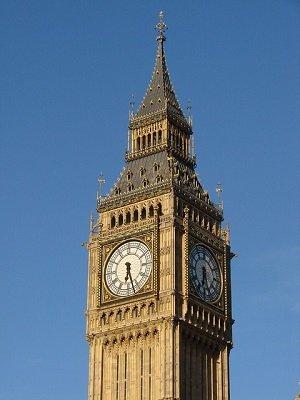The results are in. The British public has decided that they want to leave the European Union. The vote to leave the EU won by 51.9%, compared to the 48.1% who voted to 'remain'. The result will now ensure that the opinions of those who warned that engineering and science industries were in trouble if a 'leave' vote went through, will be given another read through.
In Support of 'REMAIN'
Roland Berger says that UK exports rake in GBP390 billion annually and that engineering industries are in charge of 44% of those exports. Their data tells them that a 'leave' vote would damage foreign investment into the country which could hurt their export numbers. The group says that foreign direct investment has produced up to 84,000 jobs in 2015 alone and that the exit of the EU will ensure that the UK doesn't produce these kinds of numbers again.
 Roland Berger said: "Leaving the EU would on balance be expected to have a damaging effect on both international trade terms and FDI attractiveness, particularly in the near term. Politicians, academics, and economists can merrily debate the long term, and the consensus is that the long term will be damaged also, sadly the near term is the one we are living in. The Engineering sector requires continuous investment decisions if it is to retain its international position, and so will shrink throughout this near term; indeed we are already seeing these effects.”
Roland Berger said: "Leaving the EU would on balance be expected to have a damaging effect on both international trade terms and FDI attractiveness, particularly in the near term. Politicians, academics, and economists can merrily debate the long term, and the consensus is that the long term will be damaged also, sadly the near term is the one we are living in. The Engineering sector requires continuous investment decisions if it is to retain its international position, and so will shrink throughout this near term; indeed we are already seeing these effects.”
We also recently reported that Rolls-Royce was against a Brexit. The company - who are very respected in the automotive engineering industry - said that investment decisions would be put on hold if the vote went through.
In support of 'LEAVE'
Sir James Dyson was one of the engineering experts that showed his support for a 'leave' vote and is probably quite pleased with today's historic results. This year, Dyson opened the Dyson Center for Engineering Design at Cambridge University. The center cost $11.6 million to build and will ensure that students have A-grade facilities to design and engineer new products in.
 Dyson thinks leaving the EU would lead to "more wealth and more jobs" despite what the 'remain' camp says. He said: "When the Remain campaign tells us no one will trade with us if we leave the EU, sorry, it's absolute cobblers." He spoke of the trade imbalances with the EU that are already bad but further pokes at the EU's free movement of people beliefs. He says that Britain isn't getting the kind of engineering professionals they need.
Dyson thinks leaving the EU would lead to "more wealth and more jobs" despite what the 'remain' camp says. He said: "When the Remain campaign tells us no one will trade with us if we leave the EU, sorry, it's absolute cobblers." He spoke of the trade imbalances with the EU that are already bad but further pokes at the EU's free movement of people beliefs. He says that Britain isn't getting the kind of engineering professionals they need.
"We're not allowed to employ them unless they're from the EU. At the moment, if we want to hire a foreign engineer, it takes four and a half months to go through the Home Office procedure. It's crazy," Dyson told the Telegraph. "It's just that on this issue I think they're fundamentally wrong. I don't just mean from the business point of view, I mean from the point of view of sovereignty and our whole ability to govern ourselves. We will create more wealth and more jobs by being outside the EU than we will within it and we will be in control of our destiny. And control, I think, is the most important thing in life and business."
Dealing with Brexit
After the Brexit result was unveiled, it was the automotive engineering industry that was quickest to reply.
Aston Martin is not defeatist about the referendum. They believe their exports may be boosted by the move. Chief Executive Andy Palmer said:
"We acknowledge the decision and the rule of democracy. Aston Martin will now orientate its business to deliver our mid-term plan in the context of the exit and the market volatility that may exist during the period of transition. As the UK could now be subeject to new trade tarriff barriers, we also ancitipate the need for additional productivity and efficiency in the medium term."
Ford also broached the subject, saying:
We will continue working toward this goal with key stakeholders in the UK and across the other Member States and EU institutions to ensure they understand our concerns which mirror those of the majority of the UK and European auto industry.
While Ford will take whatever action is needed to ensure that our European business remains competitive and keeps to the path toward sustainable profitability, we have made no changes to our current investment plans and will not do so unless there is clear evidence that action is not needed.
